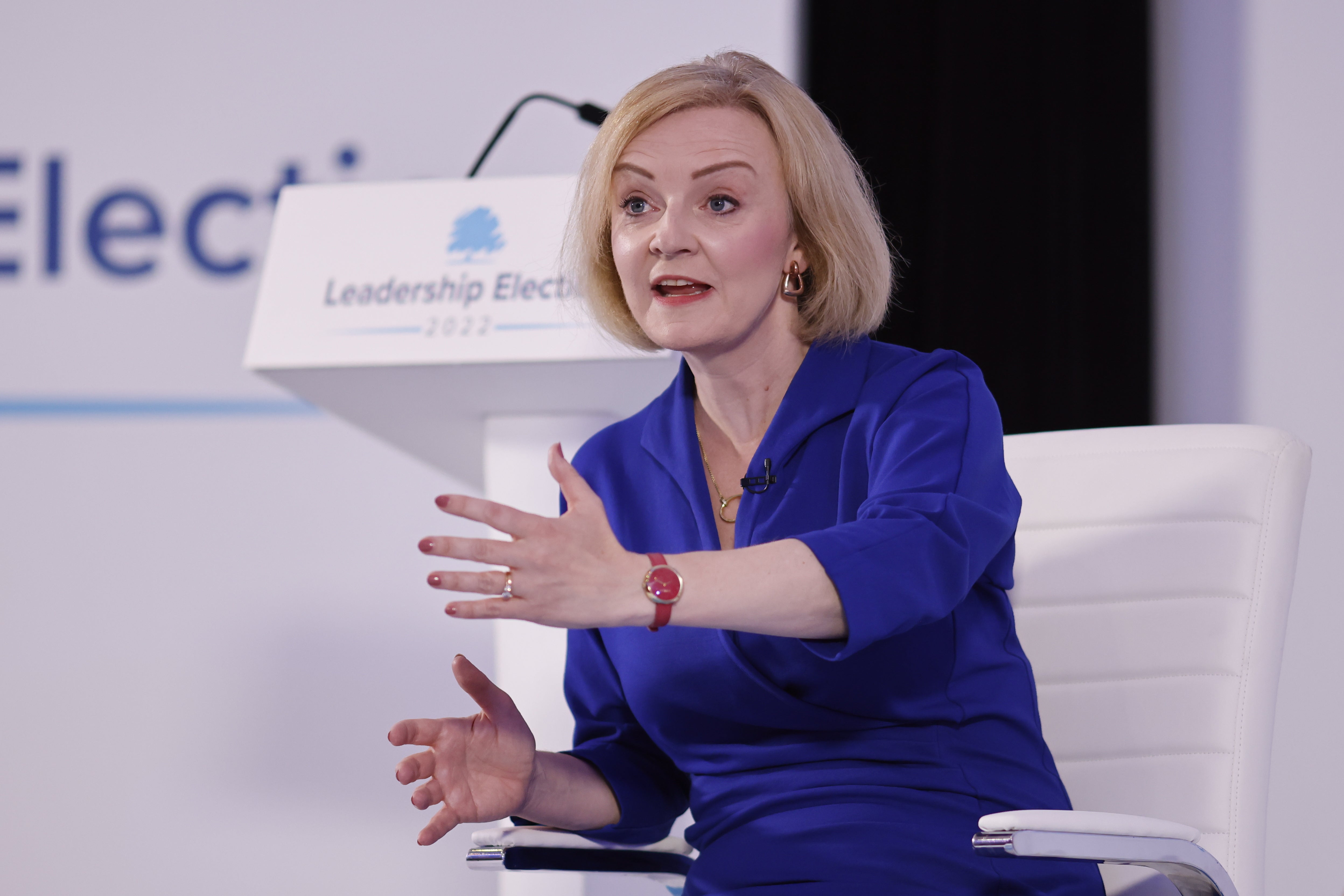Liz Truss says government went ‘too far’ by closing schools during Covid lockdown
Tory leadership hopeful says she questioned government’s ‘draconian’ lockdown policy

Liz Truss has said the government went “too far” by closing schools during the Covid lockdown.
The Tory leadership frontrunner was answering questions at a hustings event in Norwich on Thursday evening.
In response to a question about Rishi Sunak’s comments that it was “wrong to scare people” with Covid messaging, Ms Truss said “we did go too far” with school closures and questioned the government’s “draconian” lockdown policy during the pandemic.
“I didn’t actually sit on the Covid committee during that time, I was busy striking trade deals around the world,” she said.
“My view is we did go too far, particularly on keeping schools closed. I’ve got two teenage daughters and know how difficult it was for children and parents and I would not have a lockdown again.”
She added: “I was very clear in cabinet, I was one of the key voices in favour of opening up.”
It comes after her rival Mr Sunak claimed in a Spectator interview he had often been the sole critic of government decision-making during the pandemic.
“We didn’t talk at all about missed [doctors’] appointments, or the backlog building in the NHS in a massive way. That was never part of it,” he said. The meetings were “literally me around that table, just fighting”, which “was incredibly uncomfortable every single time”.
Asked about this at the hustings, Mr Sunak denied trying to “second guess” the decisions at the time, when those in charge faced “impossible” choices.He said he had been talking about the “lessons we should learn” from the pandemic.
“This is not to second guess the decisions we made at the time, which were extraordinarily difficult for everyone involved,” the former chancellor said. “Everyone was doing their absolute best at the time to do what they thought was right for the country. These were impossible decisions. But what I was talking about was having now been through it and had the experience of it, what can we learn from it?”
Mr Sunak faced a backlash from scientists after claiming independent experts were given too much power during the pandemic, with concerns about the economic and social impacts of lockdowns not properly considered.
He also claimed that the Scientific Advisory Group for Emergencies (Sage) edited its minutes to hide dissenting opinions.
But Sage members rejected Mr Sunak’s characterisation of the situation, while former No 10 insiders described his comments as “simply wrong” and “dangerous rubbish”.
Professor Graham Medley, a member of Sage, said: “Government have the power, so if one member of cabinet thinks that scientific advice was too ‘empowered’ then it is a criticism of their colleagues rather than the scientists.
“The Sage meetings were about the science, not the policy options, and the minutes reflect the scientific consensus at the time.”
Another source, who contributed advice to the government, said that if he had been arguing against school closures, Mr Sunak would have found “plenty of support” from the group of scientists he appeared to be attacking.
Boris Johnson’s former communications chief, Lee Cain, dismissed the former chancellor’s assessment of the situation, saying he was “simply wrong”.
He said: “It would have been morally irresponsible of the government not to implement lockdown in spring 2020 – the failure to do so would have killed tens of thousands of people who survived Covid.”
Mr Cain said No 10, the Treasury and the Department of Health and Social Care “met multiple times daily and discussed the trade-offs”. Dominic Cummings, Mr Johnson’s former senior adviser, said Mr Sunak’s comments were “dangerous rubbish”.
A No 10 spokesperson said: “At every point, ministers made collective decisions which considered a wide range of expert advice available at the time in order to protect public health.”






Join our commenting forum
Join thought-provoking conversations, follow other Independent readers and see their replies
Comments